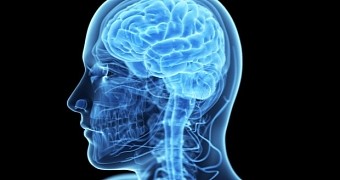In a report recently published in the science journal Neurocase, University of Leicester clinical psychologist Gerald Burgess describes the case of a man who, after a visit to the dentist, was left with a 90-minute memory.
The 38-year-old man, who asked to remain anonymous, can no longer form memories and can only remember things up to 90 minutes. Plainly put, his brain reboots once every hour and a half.
“Since the one-hour root-canal treatment, during which he was given a local anaesthetic, the individual cannot remember anything beyond 90 minutes,” specialist Gerald Burgess explains.
His personality is the same, he knows who he is and he has no trouble recollecting events that happened prior to his visit to the dentist. Still, he wakes up every morning thinking it's the day of his dental appointment.
Psychologist Gerald Burgess says the 38-year-old patient has been living with a 90-minute memory for nearly a decade now. He manages to get by with the help of an electronic diary and prompts.
There is no evidence of brain damage
In his paper detailing this bizarre case, the University of Leicester specialist details that the man was left with a 90-minute working memory after his dentist administered him a local anesthetic for a root-canal intervention.
What's puzzling is that, despite having subjected him to numerous tests, medical experts have not yet found any evidence of brain damage. Otherwise put, the man's brain seems to be intact and perfectly functional.
Previous investigations have shown that damage to the diencephalon or the hippocampus can impair memory. The thing is these two regions of the patient's brain, along with all the rest, look normal.
Add to this the fact that the man is fit and does not suffer from any health trouble that might affect memory, and it's easy to understand why this case has psychologists and medical experts scratching their heads.
“One of our reasons for writing up this individual's case was that we had never seen anything like this before in our assessment clinics, and we do not know what to make of it,” confessed specialist Gerald Burgess.
Although it was after his visit to the dentist that the man lost his ability to form new memories, the psychologist doubts that the intervention was what caused his amnesia. “I don't think that at this point the dental anesthetic or root-canal can be blamed,” he said.
A call for help solving this case
Hoping to solve this most peculiar case of memory loss, researcher Gerald Burgess and his colleagues ask that whoever knows some other person experiencing the same symptoms do not hesitate to contact them.
The specialists believe that, should they document these symptoms in another patient and compare their medical records with those of the 38-year-old man now under their supervision, they might be able to figure out what's causing them.

 14 DAY TRIAL //
14 DAY TRIAL //